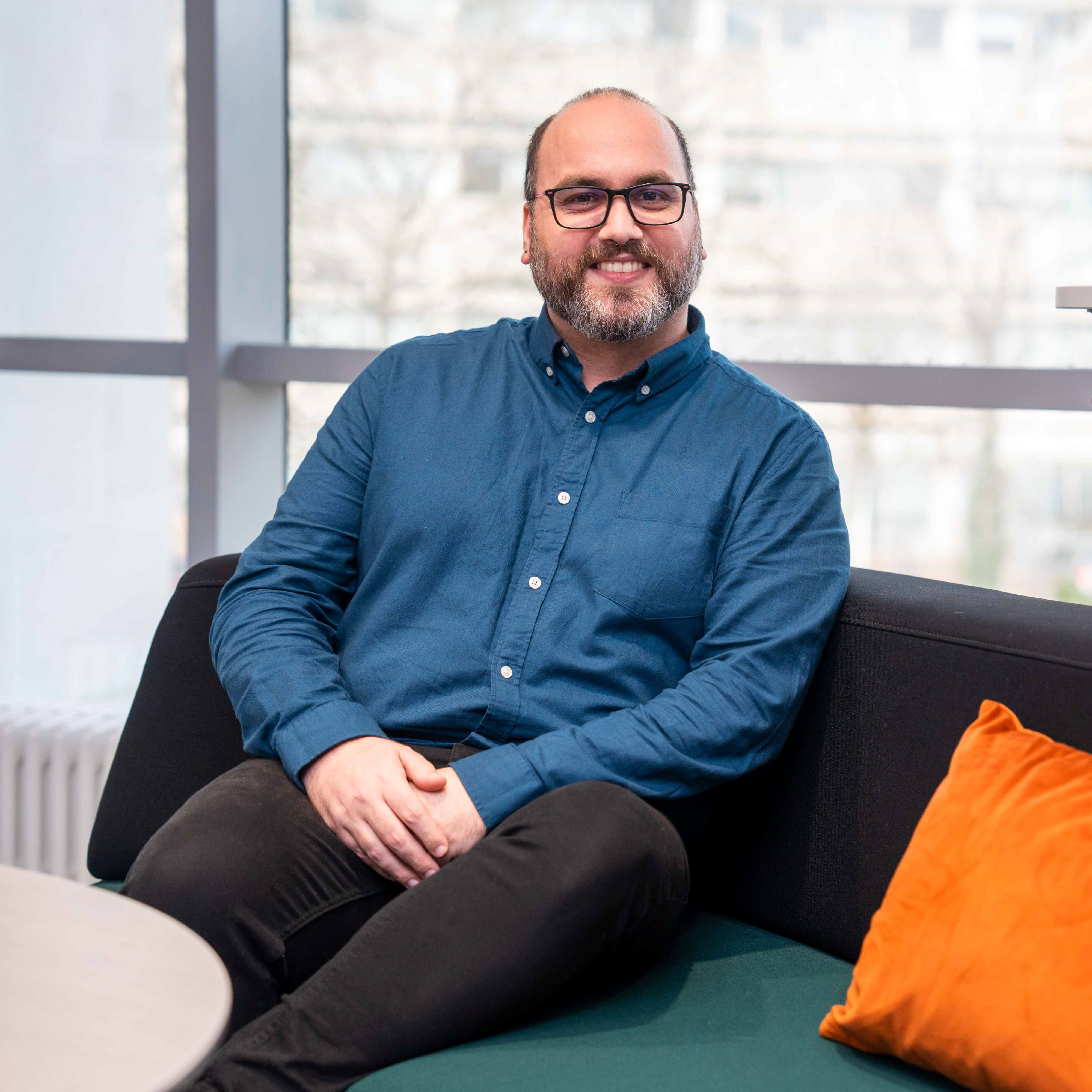“Organisations are only as strong as their people, so it’s important to increase awareness of mental health and break any taboos to keep building a more inclusive culture”
We all have mental health, like we have physical health. And we must take care of both to be able to perform at our best and be the most productive we can be. I personally believe organisations are only as strong as their people, so it’s important to increase awareness of mental health and break any taboos to keep building a more inclusive and open culture. This will help us be more agile and stay resilient. We spend a lot of our day at work and it’s important to be able to express how you feel openly, without judgement, and to be able to get the support you need when you need it.
“We spend a lot of our day at work and it’s important to be able to express how you feel openly, without judgement.”

DE&S Mental Health First Aider, Jose
I’m proud to be a Mental Health First Aider (MHFA) at DE&S. Everyone in our 400-strong MHFA network has been professionally trained by Mental Health First Aid England, and we’re here to provide initial support to anyone who may struggle with their mental health. We’re that first point of contact who can refer someone to appropriate help if that is what they want. Sometimes people can be experiencing a genuine crisis, or they just want to have a one-to-one conversation with someone they don’t know to get advice.
Anyone at DE&S can visit the network hub and find someone to speak to by their name, location or what area of the organisation they work in. This makes it easy for anyone to find the most suitable First Aider for them, especially as, from my experience, many people prefer to have a conversation face to face (so the location filter is particularly useful). Once you identify the person you would like to talk to, all you have to do is request a meeting – and you’ll always get a favourable answer. We’re genuinely here to help and support.
My role as a MHFA is by far the most rewarding aspect of my job and every time I get an email from a colleague thanking me for my time or telling me how a specific course of action I’ve suggested has been successful, it genuinely makes me proud.
It’s important to me to help others, because I’ve struggled with my mental health myself and I know how lonely it can get, and how difficult it can be to be open about it. I started to have panic attacks because of bullying I experienced in a previous job. It was such an intense experience for me. I didn’t understand it and I felt afraid every single day for over six months, until I found a therapist who helped me through it. If I can help anyone not to feel the way I felt when I first had a panic attack, then my objective will be complete.
“If I can help anyone not to feel the way I felt when I first had a panic attack, then my objective will be complete.”
These are my top tips for maintaining wellbeing:
- Meditate: This is one of the things I learned in therapy. I only do 20 minutes a day – 10 minutes in the morning and 10 at night. It was lifechanging for me and I genuinely feel it if I miss one of the meditations.
- Find a hobby: Right now, I have taken up reading, but anything will do. Sports, videogames, sewing, walking… Find anything that can give you some ‘me time’ for 30-60 minutes a day.
- Reduce your screen time: We spend a lot of our day looking at screens! I personally made a conscious effort to reduce the time I spent on my phone by at least an hour a day and it really made a difference to both my day… and my sleep! Check your daily usage and try to reduce it by 30-60 minutes and see what difference it makes.
- Make the most of the daylight: Try and take a break to get outside and make the most of the light, particularly during the darker winter months.
- Keep in touch with your loved ones: Human connection is important.
- Finally, talk it through with someone you trust: whether that’s a friend, family member or a Mental Health First Aider. If you’re struggling, there’s always someone available who’s ready to listen.


